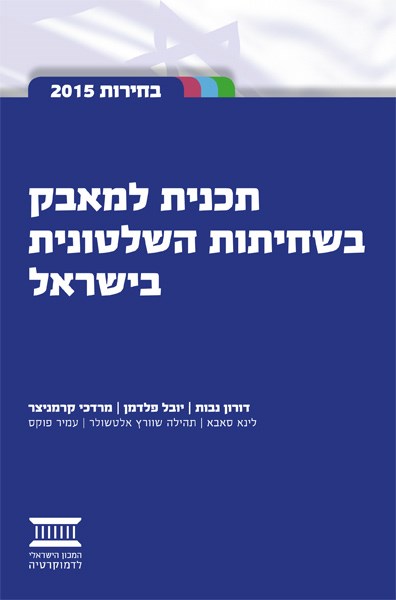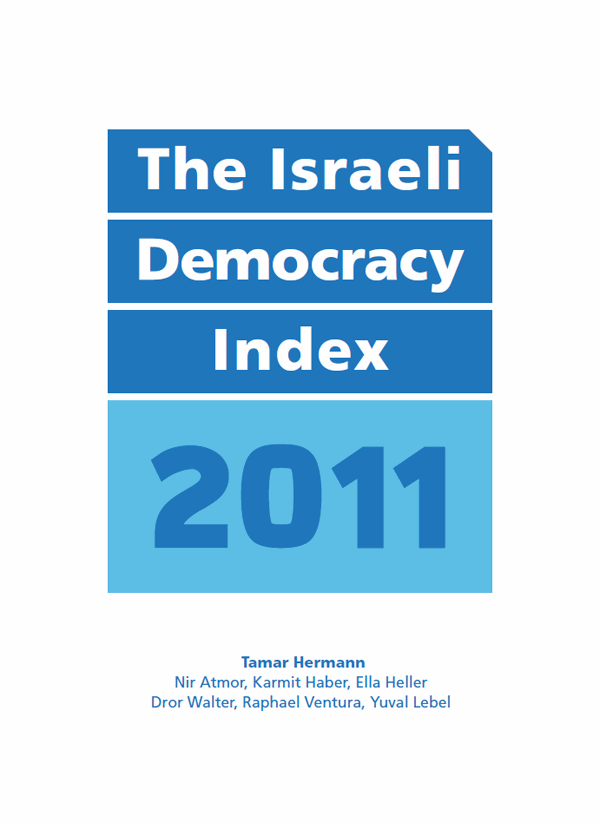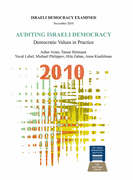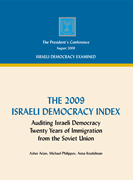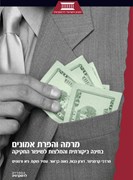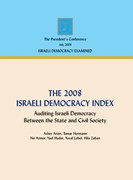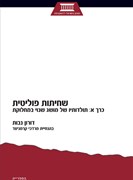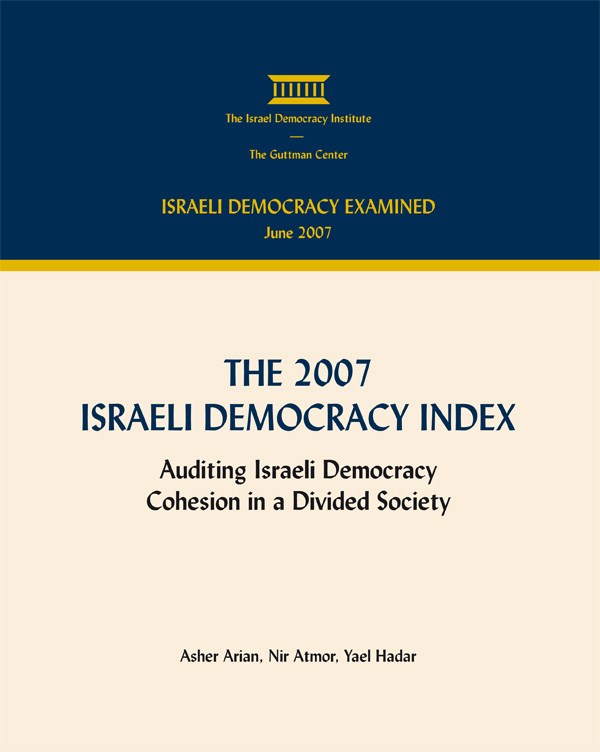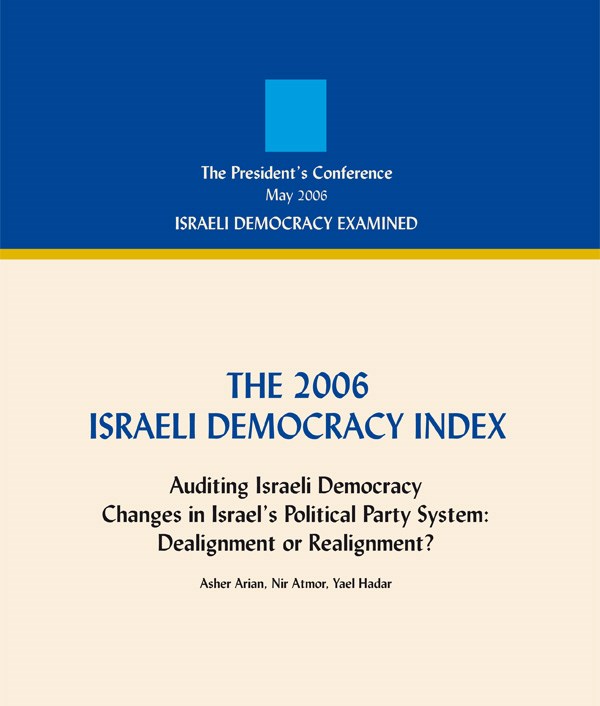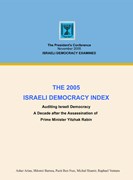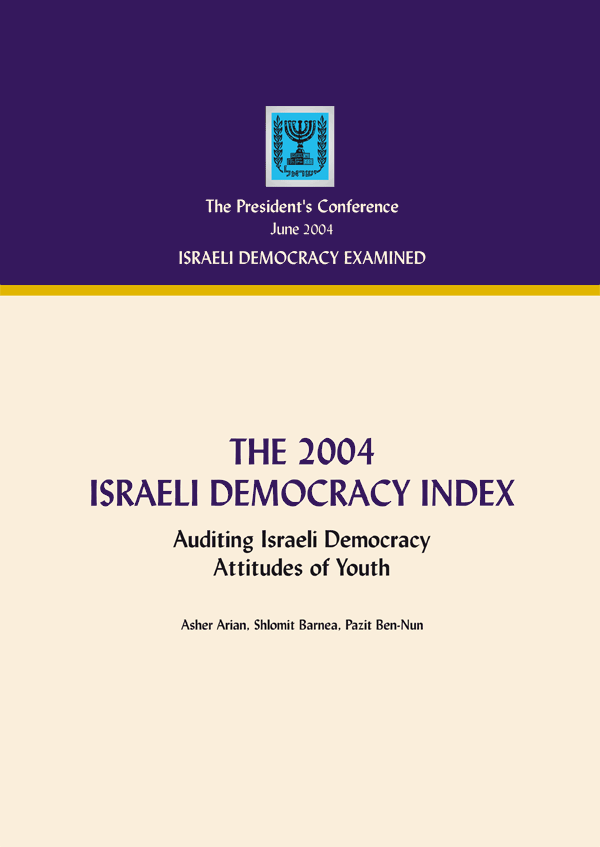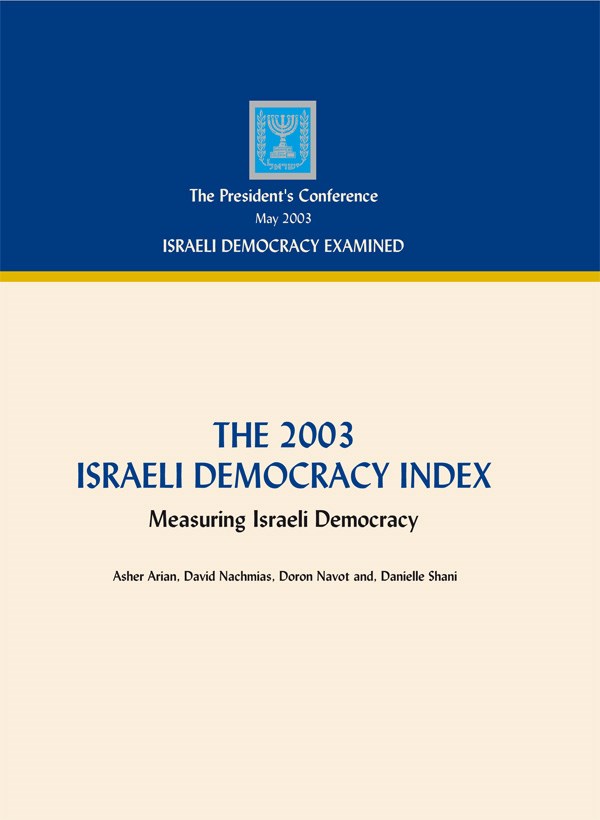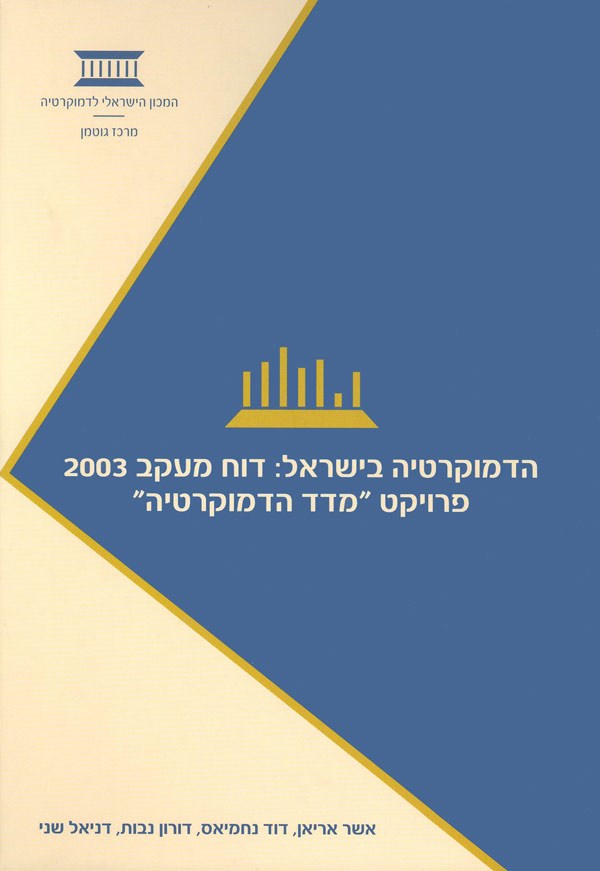

Publications Regarding corruption
Articles

The Sde Teiman Crisis and the Assault on Israel’s Rule of Law
Written By: Prof. Amichai Cohen, Prof. Yuval Shany
The court’s ruling about who can oversee an obstruction of justice investigation into military officials has broad rule-of-law implications.

State Commissions of Inquiry and the Differences from the Government's Politically Appointed Commission
Written By: Dr. Dana Blander, Adv. Mirit Lavi
The proposal to advance a politically appointed commission of inquiry into the events of October 7 is a significant departure from the accepted model of an independent state commission of inquiry. This explainer compares the two models and lays out the key details of each one.

Israel's government-appointed October 7 probe is no substitute for independent inquiry - opinion
Written By: Dr. Dana Blander
The Israeli government’s decision to establish its own committee to investigate the failures on October 7 is not enough.

What's A Commission of Inquiry? Explainer
Written By: Dr. Dana Blander
The Israeli government recently announced its intention to establish its own commission of inquiry into the events of October 7, 2023, rather than forming a State Commission of Inquiry—the most authoritative, independent, and legally empowered investigative mechanism under Israeli law. As Dr. Dana Blander, a research fellow at the Israel Democracy Institute, explains, Israel’s legal framework provides for several types of investigative commissions, each differing in its degree of independence, statutory authority, and public legitimacy. Notably, the government’s recent decision does not establish a State Commission of Inquiry—the appropriate and legally grounded institution for investigating the events of October 7—nor does it create a governmental commission of inquiry. Instead, it proposes a vague, ad hoc body seemingly tailored to serve specific political interests rather than the public need for a credible and impartial investigation. This explainer outlines the existing commissions - as more information comes to light about the government's planned commission, additional analysis will be provided.

The Appointment of the Next Shin Bet Chief and The Advisory Committee on Senior Civil Service Appointments
Written By: Dr. Assaf Shapira
When and why was the Advisory Committee on Senior Civil Service Appointments established, what are its powers, and which appointments is it supposed to review? Everything you need to know about the "Grunis Committee" that is examining the candidacy of Major General Zini for head of the Shin Bet.

Some No Longer Believe the Prime Minister Can Violate the Rule of Law - He Is the Law
Written By: Adv. Anat Thon Ashkenazy
When loyalty to the Prime Minister is seen as loyalty to the law itself, Israel risks replacing democracy with rule by decree—undermining the very foundations of the rule of law.

Four Comments on the Decision to Dismiss the Head of the Shin Bet
Written By: Prof. Suzie Navot
On March 16, 2025, Prime Minister Netanyahu announced his intention to bring the dismissal of Ronen Bar, the head of the Israeli Security Agency (Shin Bet), Israel's internal security service, to a vote of the full cabinet. Though not a perfect comparison, the Shin Bet is often seen as comparable to the FBI in the US.

Official State Commission Sends Warning Letters in Submarine Acquisition Inquiry
Written By: Dr. Amir Fuchs
The State Inquiry Commission on Naval Vessels was tasked with examining the decision-making processes at both the professional and political levels between 2009-2016 in relation to the acquisition of naval vessels during those years.

The New Rabbis Law Includes a Number of Inherent Flaws
Written By: Dr. Ariel Finkelstein
Dr. Ariel Finkelstein warns that the proposed new "Rabbis Law" would weaken the standing of local communities, could lead to cronyism, reduce women's representation and more.

The Missing Side of the Triangle: The Danger Religious Zionism Faces
Written By: Prof. Benjamin Porat
Religious Zionism (the sector, not the political party that appropriated the name) is one of the most influential population groups in Israel. In the following essay, I wish to draw attention to a worrying process afflicting religious Zionism, the roots of which can be traced back to its early days and has dramatically worsened in recent years.

What is “Incapacity” and what are the Implications of a Prime Minister’s Incapacity?
Written By: Dr. Amir Fuchs
When is the Attorney General empowered to declare that the Prime Minister is incapable of fulfilling his duties? When does temporary incapacity become permanent? What has the Court ruled in the past about a declaration of incapacity concerning Benjamin Netanyahu?

The Incapacitation of a Prime Minister: An Explainer
Written By: Dr. Amir Fuchs
What provisions does Israeli law provide for the possibility of declaring the Prime Minister "Incapacitated". IDI expert explains

Q&A: Plea Bargain Agreements
Written By: Dr. Amir Fuchs, Dr. Guy Lurie
As former Prime Minister Netanyahu weighs the option of a plea bargain, IDI experts weigh in on the legal standing of such an agreement and its ramifications.

No More Shame - No More Responsibility
Written By: Prof. Yedidia Z. Stern
Now more than ever Israel needs a leader who will bolster its inner strength - is the leadership up to the task?

The Rule of Law Over the Ruler
Written By: Prof. Yedidia Z. Stern
It's one of democracy's substantial achievements: just like every citizen, Netanyahu will stand before 3 judges, whose task is to decide whether he is innocent or guilty

PM Under Indictment - A Dangerous Precedent
Allowing Netanyahu to form a government would constitute a conflict of interest and would result in a negative and irreversible precedent for the rule of law
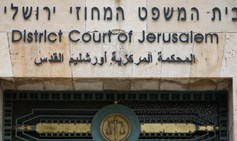
Prime Minister on Trial - Explainer
Written By: Dr. Amir Fuchs
Prime Minister Netanyahu’s trial in the Jerusalem District Court is to begin on March 17th. Dr. Amir Fuchs, a researcher at the Israel Democracy Institute provides responses to key questions as to what this process will look like.

Israeli Voters - Not Judges
Written By: Prof. Yedidia Z. Stern
Israeli Voters, Not Judges, Must Determine Who Will Lead the Country Next
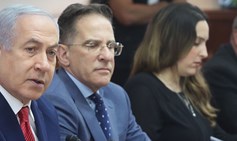
Remove Netanyahu Right Now on Grounds of Temporary Incapacity
Written By: Prof. Yuval Shany
There's an unacceptable, extreme conflict of interest between Netanyahu the accused and Netanyahu, head of the executive branch

Israel's Political Crisis and the Challenge of Populism
Written By: Prof. Yuval Shany
Actual policy making in a liberal democracy is based on sophisticated nuances.

Statement by IDI on the Attorney General's Announcement
As events unfold, IDI puts out a statement on the Attorney General's breaking announcement to indict Prime Minister Netanayhau
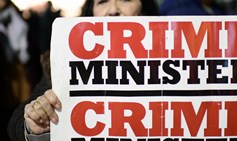
How to Eradicate Government Corruption
Written By: Adv. Edna Harel Fisher, Prof. Yuval Feldman
Among other things, government corruption deals a blow to the country’s economic vitality, and makes it less attractive to investors and entrepreneurs.
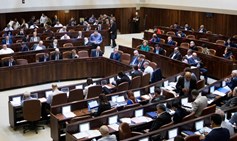
Everything you Wanted to Know About the Immunity Law
IDI experts provide an overview to the proposed Immunity Law that would grant members of Knesset automatic immunity from criminal prosecution
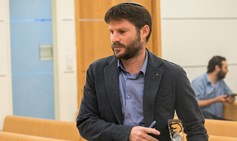
Proposed Immunity Bill – Contempt for the Rule of Law
Written By: Prof. Mordechai Kremnitzer, Dr. Amir Fuchs, Dr. Assaf Shapira
The current proposal conveys a harsh message of contempt for the rule of law and is in sharp contrast to the current trend in democratic countries

Is Israel Approaching its Watergate Moment?
Written By: Yohanan Plesner
In an op-ed published in the Washington Post, Yohanan Plesner assures readers that, "Supporters of Israel's democracy at home and abroad should know that so far the checks and balances built into our young democracy are holding up in the face of serious pressures."

Prime Minister under Investigation – A Guide for the Perplexed
The following guide represents the collective wisdom of the Israel Democracy Institute's scholars and explains the various possibilities and scenarios as Israel enters unchartered political and legal waters

Special Elections Survey
Written By: Prof. Tamar Hermann, Dr. Or Anabi
The Jewish public is divided over the question whether the prime minister should resign if indicted by the Attorney General, pending a hearing; 52% of the Jewish public believes that Israelis living abroad should also have the right to vote
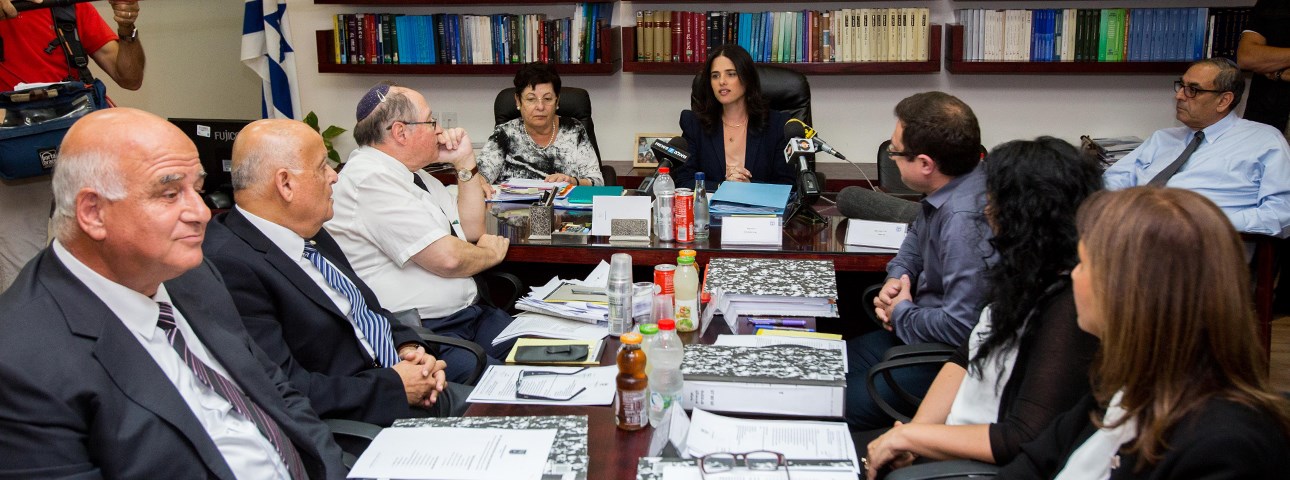
A Lethal Virus
Written By: Prof. Yedidia Z. Stern
"If indeed a member of the Judicial Appointments Committee was swayed by bribes, this constitutes the deepest possible subversion of the system and its legitimacy".

Corruption: A Very Glocal Problem
Written By: Adv. Alona Vinograd
Transparency International is among the most prominent global organizations fighting corruption through exposure, documentation and measurement.
Delia Ferreira Rubio, Chair of the organization, discusses the challenges, pitfalls and goals of their work, while Alona Vinograd of the Israel Democracy Institute brings the question of corruption home to Israel against the backdrop of a heated political stage.

Beyond the Veil of Ignorance
Written By: Prof. Yedidia Z. Stern
One fact is clear: the moment the attorney-general announces his decision, half of the public will reject it, to the point of accusing him of serving political interests and not really seeking the truth.

The Municipal Elections 2018: Digital Resilience
Written By: Dr. Tehilla Shwartz Altshuler, Dr. Guy Lurie
The digital domain has developed into something of a wild west for election campaigning in recent years. While there are strict laws governing the press, radio, and television, there are almost no restrictions on online campaigning, such as on the forms of advertising permitted, the use of personal data, and advertising budgets. This lack of regulation has already been shown to potentially affect election results, and may lead to the misuse of information on residents, routinely collected by the municipality as part of its function by those in positions of power in local government.

Understanding How Bibi's 'Gift Affair' Might Have Happened
Written By: Jerusalem Post, Prof. Yuval Feldman
In an interview Prof. Yuval Feldman, discusses his new book "The Law of Good People" and sheds light on the connection between good people and corruption.

Will Trump’s Peace Plan Gain Traction?
Written By: Prof. Tamar Hermann, Prof. Ephraim Yaar
The monthly Peace Index of the Israel Democracy Institute and Tel Aviv University, published today, finds that most Israelis think that Trump’s peace plan won’t gain traction and that the IDF should directly target ‘terror kite’ assailants.

Netanyahu: Down, but Not Out
Written By: Yardena Schwartz
The Israeli prime minister faces many charges, yet his supporters remain behind him
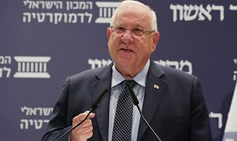
A Democracy in Flux
President Reuven Rivlin, Justice Minister Ayelet Shaked,Leader of the Israeli Labor Party Avi Gabbai and State Prosecutor Shai Nitzan relate to tensions surrounding the prime minister's investigations and the coalition crisis at a special conference held last night with Makor Rishon

Survey: 56% of Jews Think Most Arab Citizens Support Temple Mount Attack
Monthly Peace Index also finds that 65% of Israelis do not trust Prime Minister Benjamin Netanyahu's handling of the crisis on Temple Mount.

Democracy at Risk
Written By: Prof. Mordechai Kremnitzer
Citizens must lead the way in the battle against political corruption.

Israel Democracy Institute on the Reform of the Clauses of the Penal Code that Deal With Crimes of Fraud And Breach of Trust:
Reform was written based on extensive research done by IDI.

IDI on the Graffiti on the Supreme Court: It is on the Prime Minister and party leaders to act to protect the Supreme Court
The Israel Democracy Institute (IDI) spoke out strongly against the graffiti painted on the Supreme Court building, discovered Nov. 4, and said it is a direct result of the slander that has been recently put out there against the court system by Israeli public activists. IDI stressed that it is the job of the Prime Minister and the parties to defend the rule of law.

Dealing with Corruption in the Municipalities
As investigations of mayors and other municipal leaders are on the rise in Israel, find out about IDI resources on the issue of corruption in Israel's local authorities.
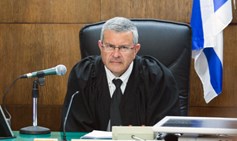
The Holyland Sentencing and the Fight against Government Corruption
Written By: Prof. Mordechai Kremnitzer
In an op-ed in <em>Haaretz</em> published after Ehud Olmert was sentenced to six years in prison, Prof. Mordechai Kremnitzer explores the implications of the Holyland case for the battle against corruption in Israel.

The Holyland Sentencing: A Faithful City?
Written By: Prof. Yedidia Z. Stern
In an article in <em>Makor Rishon</em>, Prof. Yedidia Stern describes his feelings of sadness, pride, apprehension, and hope upon the sentencing of Ehud Olmert to prison for his role in the Holyland affair.

The Struggle against Government Corruption
Written By: Prof. Mordechai Kremnitzer
In an op-ed in <em>Haaretz</em>, Prof. Mordechai Kremnitzer discusses government corruption in Israel and the implications of the Holyland verdict for deterring such corruption in the future.

A Preemptive Strike on Iran: Who has the Authority to Decide?
Written By: Eyal Tsur, Prof. Mordechai Kremnitzer
As the world considers the threat of a nuclear Iran, Israeli public discourse has focused primarily on whether or not Israel should launch a preemptive strike on Iran's nuclear facilities. But who has the authority to decide whether a military operation should be conducted? In this article, IDI Vice President Prof. Mordechai Kremnitzer and researcher Eyal Tsur explore the strengths and weaknesses of the current division of responsibility regarding this matter, and recommend ways of improving the system.

Israel, A Unique Nation in the MidEast
Written By: Vernon Bogdanor
How should Israelis feel about the Katzav verdict? In this article from <em>The Jewish Chronicle</em>, Prof. Vernon Bogdanor of King's College in London, a member of IDI's International Advisory Council, asserts that the outcome of the trial can be a source of pride, since the mark of a constitutional democracy is that no one is above the law. At the same time, however, he warns that Israel needs to develop a culture of self-criticism in light of recent trends in attitudes towards the Arab minority.

50% of Jewish public Hesitant to Expand Settlement Construction, Even with Trump at Helm
In addition to questions about building in or annexing parts of Judea and Samaria, the Peace Index looked at aspects of the investigations of Prime Minister Benjamin Netanyahu, including trust in the police and in the attorney-general. In light of what has been revealed about conversations between Netanyahu and Yedioth Ahronoth publisher Arnon Mozes, the Peace Index looked at the public’s attitude toward Israeli media.

